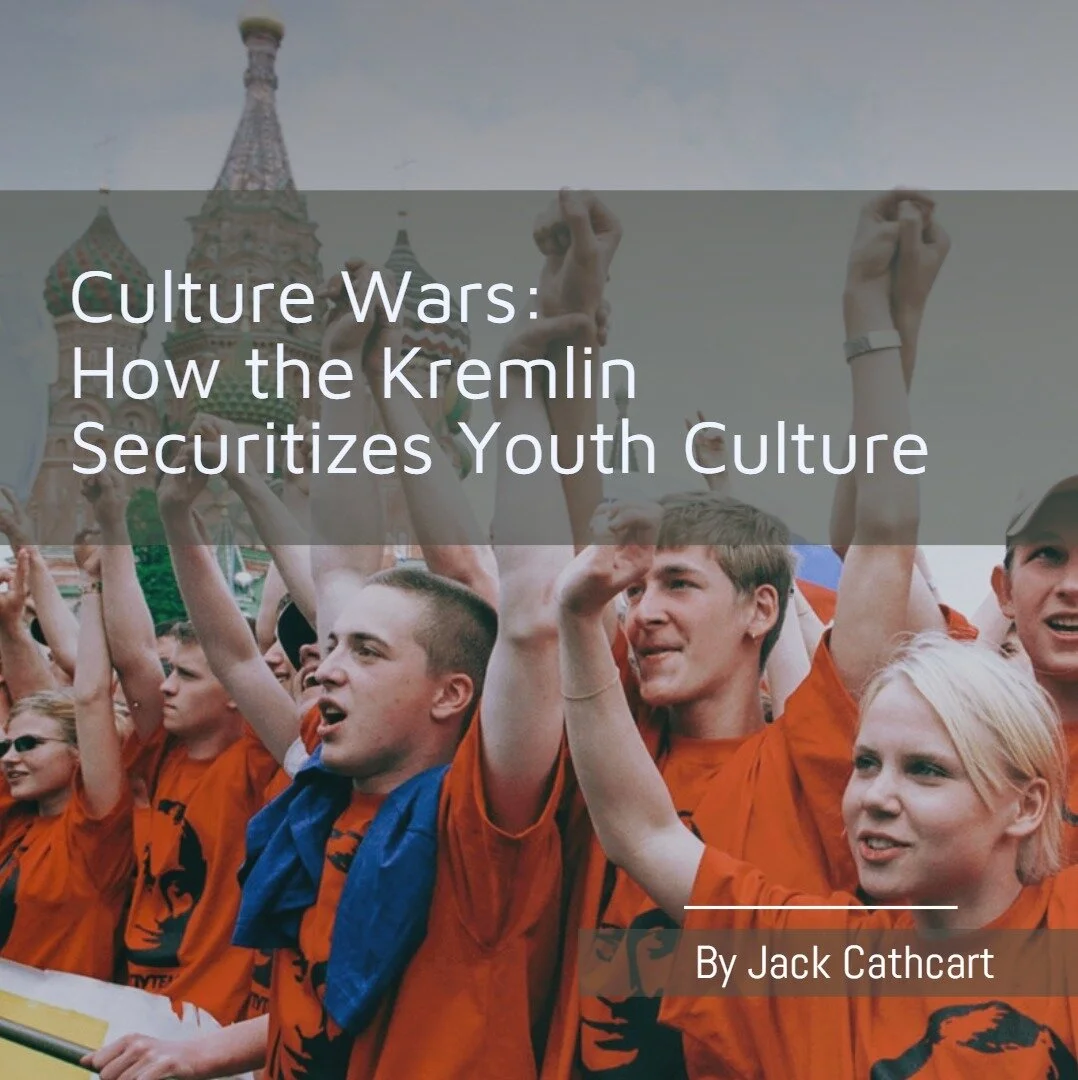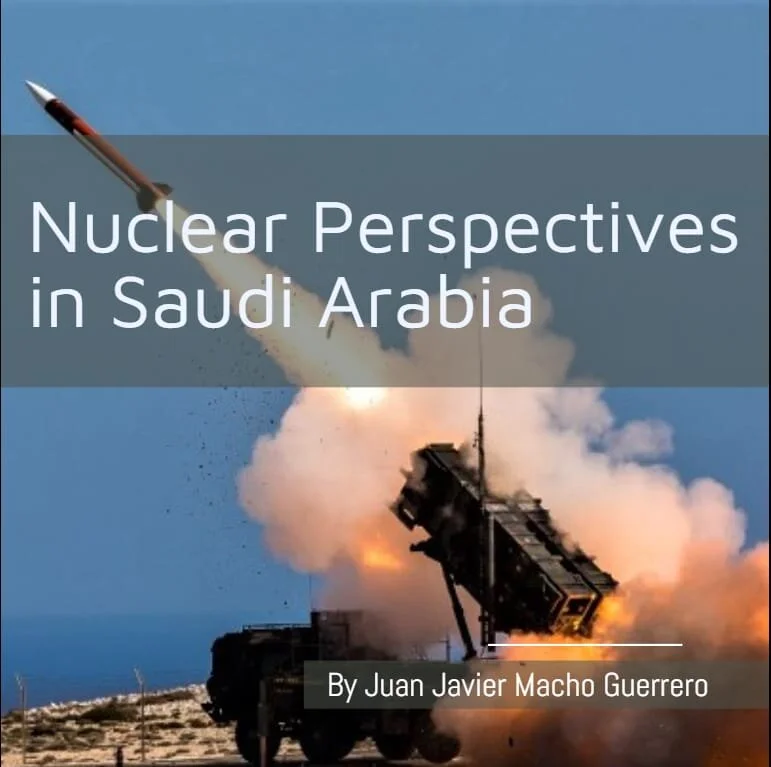Since the 2010s youth popular culture has become an object of close attention and management on the part of political actors and institutions in Russia, with substantial funds being diverted towards young people via a national project of patriotic education (Kukulin, 2020) (Hemment, 2015, p 7). From school curriculums that discourage critical thinking to the formation of youth groups such as the infamous Nashi (Ours), the Kremlin has sought to imbue the Russian youth with the “correct” moral values. This article explores how youth culture is firstly securitized and then leveraged, to justify the expansion of further security measures into wider parts of society.
Я, Силовик. Rosgvardiya: The Emperor's New Guards?
The final instalment in this series will explore Rosgvardiya the newly formed National Guard in Russia. From its creation and the roles it fulfils, to its leadership and its future uses, the National Guard of the Russian Federation is a force to be reckoned with. This article will delve into all of these themes and underline how Rosgvardiya fits into the security apparatus of the Russian Federation. Readers should ask themselves the following throughout: Is Rosgvardiya a new and improved method of maintaining the internal security, or is the National Guard the personal police of the Russian President?
Я, Силовик - To Serve and Protect The Regime: The MVD & The OMON Riot Police
In modern-day Russia, policing is one of the most employed professions, with one police officer for every seventy-five people [1]. Considering the legacy of the Soviet Union, this should come as no surprise. In recent times, public order assets have been greatly revamped under President Vladimir Putin. This article explores the development of policing in Russia since the collapse of the USSR, fundamentally analysing the role of the Ministry of Internal Affairs (Ministerstvo vnutrennikh del, MVD) and the importance – and controversies – of Russia’s riot police, the Special Purpose Mobile Unit (Otryad Mobil'nyy Osobogo Naznacheniya, OMON).
Я, Силовик - A Bad Crime Novel? Russia’s Foreign Intelligence Service (SVR)
The Sluzhba vneshney razvedki (SVR) or Foreign Intelligence Service continues to be an extremely potent organisation and key component of Russia’s Security Council in implementing the foreign policy aims of the Kremlin. Accusations of election interference, social-manipulation and widespread cyber attacks have put a spotlight on this branch of the Russian intelligence services. This article will provide an overview of the SVR, outlining its origins from the 1990s and how it operates in relation to the Russian President, Vladimir Putin. It will then detail the SVR’s utilisation of active measures (aktivnye meropriyatiya) in the Kremlin’s continuing conflict with the West.
Я, Силовик. The GRU
The Main Directorate of the General Staff of the Armed Forces of the Russian Federation - (Главное Разведывательное Управление/Glavnoe Razvedyvatel'noe Upravlenie) - or ‘GRU’ is one of the most inconspicuous organisations imaginable. Even among the generally taciturn cohort of Russian intelligence agencies, the GRU has been remarkable in its pursuit of secrecy. Whereas an endless stream of horror stories emanated from the Lubyanka, from the Aquarium - the GRU’s headquarters built atop a mass grave - there was only ever silence. This article will explore this most secretive and dangerous of organisations, offering a detailed assessment by comparing its Cold War past and its modern identity.
Я, Силовик. The FSB: The Sword and Shield of the Federation
Any talk of the Soviet Union or the Cold War inevitably includes the Soviet Committee for State Security (KGB). Just as the Russian Federation succeeded the Soviet Union, so too did a number of organisations and agencies succeed the KGB. This first article will explore one of these institutions, the Federal Security Service (FSB). Beginning with the history and how the service came to be in modern Russia, this piece will go on to explore the nominal role and functions of the FSB. It will also shine a light on the actual role played by the Federal Security Service in Russian politics and society today, as well as touch on some of the controversy that surrounds this organisation. The purpose of this article is to illuminate the FSB as a service and inspire readers to dig a little deeper into the world of the security services of Russia.
Artificial Intelligence: A Game Changer for All-Source Intelligence Activities?
Intelligence agencies today have to collect and analyse intelligence on numerous individuals, state and non-state actors in an environment of many complex hybrid threats and overlapping interests. Additionally, there is a glut of data from several sources that need to be processed quickly and accurately. Artificial Intelligence (AI) presents a viable way to maximise the value of the All-Source intelligence products. Despite all the promise AI holds for the Intelligence Community, the technology is far from perfect.
Plenty of Phish in the Sea: How Artificial Intelligence is Transforming the Oldest form of Cybercrime
Artificial intelligence and machine learning (AI/ML) have seamlessly and fundamentally transformed the way we interact with digital technology [1]. Dual-use applications, such as the case of AI/ML, can be quickly exploited by cybercriminal activities. One example is phishing, one the first types of cybercrime. While phishing in today’s world is still perceived as an outdated scam, AI/ML advancements have paved the way for more convincing phishing attacks and the wider use of hyper-targeted spear-phishing. This article will focus on the AI/ML-enabled transformation of phishing and spear-phishing and the consequences it poses for the cybersecurity environment.
Ethics, Artificial Intelligence and Predictive Policing
AI is increasingly being used in all areas of our lives, including law enforcement. Through pattern identification, AI offers the field of law enforcement an incredible opportunity to better prevent crime. In this regard, AI is being used in predictive policing, or the ability to predict crime before it happens. The practice itself already poses many ethical and legal dilemmas, but AI reinforces these problems. This article explains how the use of AI in predictive policing poses a threat to fundamental rights and proposes a possible alternative.
The Augmentative Effect of AI in The Open Source Intelligence Cycle
Artificial Intelligence (AI) has become one of the most polarising topics and eye-catching terms in our contemporary lexicon; seen as either a paragon of modern technology or as a harbinger of humankind’s technological doom, depending on who you ask. From pocket AIs such as Siri to self educating AIs in Silicon Valley, AI has permeated into virtually all facets of life.
Artificial intelligence and nuclear warfare. Is Doomsday closer? - Cyber Security and AI Series
Artificial intelligence (AI) has the potential to radically change societies. By employing it in numerous fields, ranging from healthcare to the economy can improve humans’ lives. However, this revolutionary technology may cause disruptive imbalances in the military power relations between countries, especially in the field of nuclear stability. Although the development of AI-based defensive weapon systems might improve nuclear deterrence, incorporating artificial intelligence into nuclear offensive capabilities and command and control (C2) systems could accelerate escalation in crisis scenarios.
Switching Off The Lights - Cyber Security and AI Series
There is the confidence that the globalised, networked systems we have built are resilient enough to overcome significant disruptions. What if this confidence is misplaced? This article seeks to answer this question in relation to what is likely the most important of humankind’s networks: the electrical grid. Two methods for conducting a cyber attack against the electrical grid will be considered; the first for disrupting the grid, and the second for destroying core elements. A warning will be offered to the West not to rely on technological supremacy in cyberspace as a deterrent to cyber attacks.
Nuclear Perspectives in Saudi Arabia
Riddled with persistent conflicts, bitter rivalries and a plethora of economic, social and political fractures, the Middle East stands today as one of the most convoluted regions of the globe. As such, the international community holds a great interest in promoting effective policies to avoid the proliferation of weapons of mass destruction. The tensions coming from Iran's nuclear program have been for long a top priority in this area, but other regional actors should not be overlooked, as they may play an important role in the near future’s nuclear dynamics. This is the case of the Kingdom of Saudi Arabia, whose perspectives on nuclear technology, both for civil and military uses, will be explored in this article.
The Central Role of Memes on Alt-Right Radicalisation in the “Chanosphere”
The internet forms an important component of ideological radicalisation, as it provides a platform for like-minded individuals to communicate in virtual communities like the ‘Chanosphere,’ which in turn allows for extremist groups to develop safe havens of communication and information exchange [1]. Using the case study of a cluster of alt-right terrorist attacks initiated by the Christchurch mosque shootings in 2019, this analysis will demonstrate that alt-right memes played a central role in radicalisation, in that they acted as vessels of encoded racist ideology which used ‘weaponised irony’ as a means of communicating group identity
India’s Act East Policy: Strategic Rationales and Maritime Strategy
India’s contemporary relations with Southeast Asia can be viewed through a prism of historical, religious, and cultural influences which it has had in the region for more than a millennium. These relations include the ancient Indianised kingdoms and maritime empires of Sailendra, Funan, Majapahit and Khmer respectively and a legacy that continues to be celebrated through the spread of the Hindu, Buddhist and Islamic faiths which have shaped the contemporary societies of these states.
Challenges Faced by Social Media in Curbing Misinformation
The spread of misinformation, especially during the pandemic has posed several challenges for social media companies. The structure of their algorithms and exploitation of human biases have exacerbated the impact of misinformation. Despite the efforts by social media companies, misinformation has continued to grow at an enormous scale which has further endangered life during the pandemic.
Moon Rush: The First Step In A New Security Space
We are currently on the verge of a new age in space activities. The proliferation of lunar exploration programmes and plans to build the first permanent settlements in the 2030s could have a great impact on future international economic and political dynamics. But what are the reasons to think of the Moon as a strategic objective? What countries are trying to capitalise on it? In the following article, I will try to answer both questions.
The Russian Disinformation Campaign in the Western Balkans
After the 2014 annexation of Crimea and the EU- and US-imposed sanctions on Russia, the Kremlin employed a counter-strategy: disinformation and propaganda. The Western Balkans, a key strategic partner to the EU and NATO, became a fertile ground for Russian disinformation campaigns. Capitalizing on ethnic divides, weak institutions, and the deteriorating freedom of media, the Kremlin inserted itself into the region. Using Serbia as a launch site for disinformation, Russia established a regional base for the Sputnik news agency in Belgrade.
Exploring the Legality of US Humanitarian Assistance to Venezuela
For years Venezuela has been affected by mass displacement and famine, caused by natural disasters and a significant economic crisis. At the beginning of 2019, the United States sent food and medicines to the population of Venezuela to help mitigate the situation. President Nicolás Maduro— sworn in for a second term in January of the same year — refused to accept the help of the United States and ordered the barricade of the bridge where the American aid was supposed to be transported.
Ethiopia’s Internet Shutdowns: Contributing to humanitarian catastrophe in the Tigray
Internet shutdowns are becoming increasingly common across Africa. In Ethiopia, the practice has proven to be one of the government’s favoured tools to control information reaching its subregions’ ethnic groups since at least 2015. After the start of the Tigrayan War in November 2020, Internet cuts have heavily contributed to the creation of the humanitarian crisis.





















